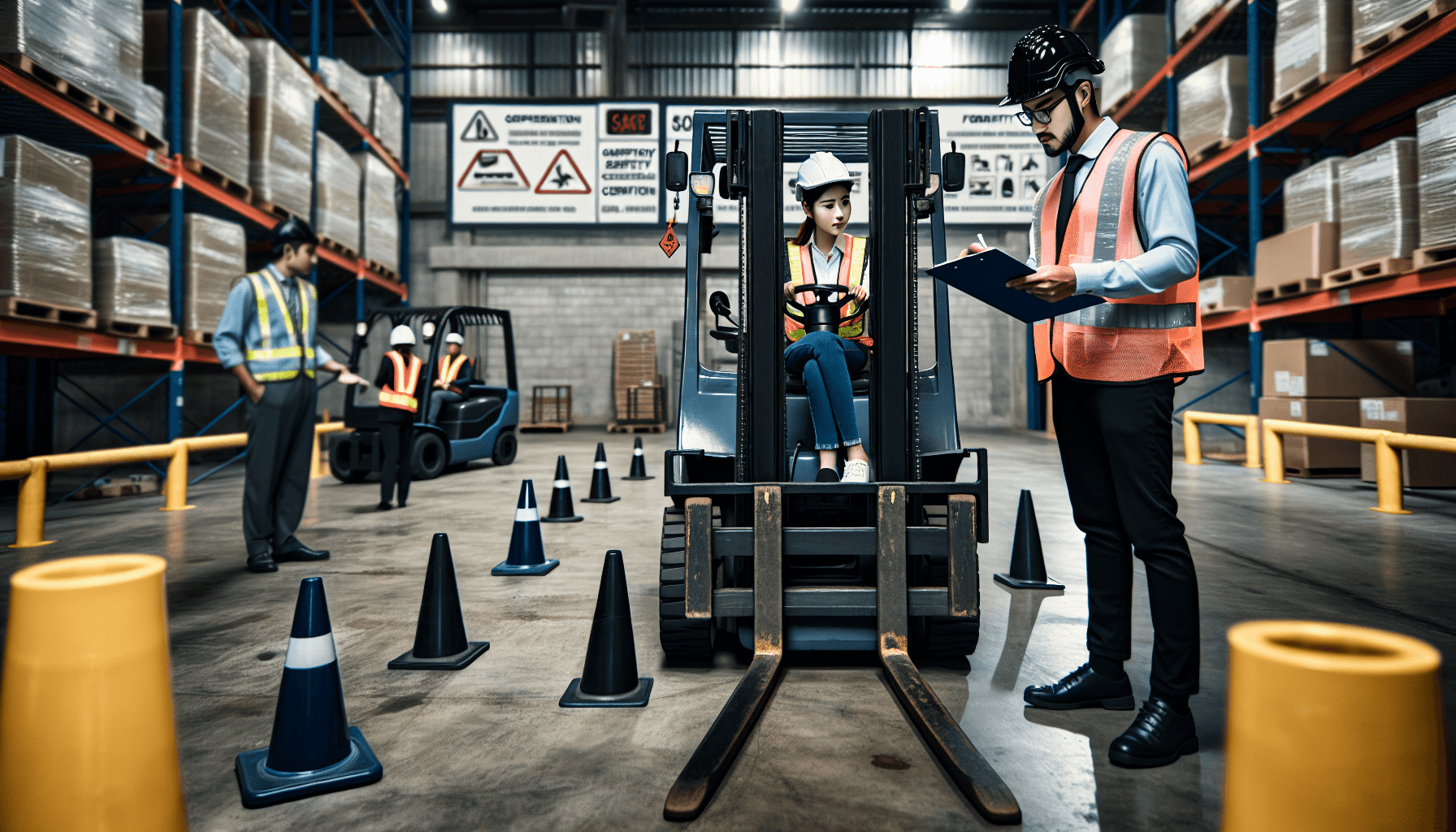Warehouse operations can be complex and demanding, requiring careful planning and execution to ensure smooth and efficient processes. One vital aspect of warehouse operations is forklift safety. Forklifts are powerful machines that play a crucial role in material handling, but they can also pose significant risks if not operated properly. That is why forklift safety certification programs are essential for both employers and employees.
The Importance of Forklift Safety Certification
Obtaining a forklift safety certification is not just a legal requirement, but it also brings numerous benefits for warehouse operations. Let’s explore the top advantages of implementing forklift safety certification programs:
- Enhanced Safety: Forklift operators who have undergone proper training and certification have a better understanding of the potential hazards and safety protocols. By ensuring that all forklift operators are well-trained, you create a safer work environment for both employees and visitors.
- Reduced Accidents and Injuries: Forklift accidents can have devastating consequences, leading to severe injuries or even fatalities. With certified forklift operators, the risk of accidents and injuries is significantly reduced. Certification programs focus on teaching essential skills such as proper driving techniques, load handling, and hazard recognition, minimizing the chances of accidents.
- Increased Productivity: Forklift safety certification programs not only promote safe operation practices but also enhance overall productivity in the warehouse. Certified operators have better knowledge and skills, allowing them to operate forklifts more efficiently, resulting in increased productivity and improved workflow.
- Cost Savings: Implementing forklift safety certification programs can help save costs associated with accidents, injuries, and property damage. By reducing the number of accidents, you can avoid medical expenses, legal fees, and expensive repairs or replacements.
- Compliance with Regulations: Forklift safety certification is often a legal requirement in many jurisdictions. By ensuring that your forklift operators are certified, you can meet the regulatory standards and avoid penalties or fines for non-compliance.
Now that we’ve established the importance of forklift safety certification, it’s crucial to choose the right program and training provider. HCO Innovations, a prominent provider of warehouse optimization solutions, offers comprehensive forklift safety certification programs tailored to meet the specific needs of your operation.
At HCO Innovations, we understand the critical role of forklifts in warehouse operations and the importance of ensuring their safe operation. Our certification programs are designed to provide in-depth training on forklift operation, maintenance, and safety best practices.
By enrolling your forklift operators in our certification program, you can benefit from:
- Expert trainers with extensive knowledge and experience in forklift safety
- Hands-on training exercises to simulate real-world scenarios
- Comprehensive curriculum covering all aspects of forklift safety
- Ongoing support and resources for continuous improvement
Investing in forklift safety certification is investing in the well-being of your employees, the efficiency of your operations, and the success of your business. Don’t compromise on safety, contact HCO Innovations today to learn more about our forklift safety certification programs and schedule a free warehouse safety evaluation.

